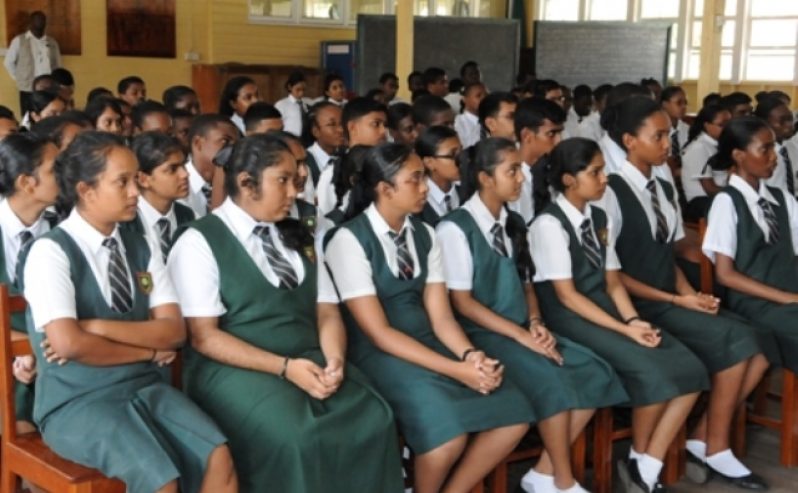Government has announced in the 2016 fiscal Budget that it has programmed to spend about $40.3B or 17.5 percent of the 2016 Budget to strengthen the Education sector compared to $31.8 billion or 16.6 percent of last year’s budget.
Equity and quality across regions aims to guide their interventions in 2016 and well into the medium term, while focus will be given to education in the hinterland where both the deployment of manpower and the monitoring of education delivery require urgent attention.
Further, to ensure children are adequately outfitted for school, 28,000 pairs of footwear will be distributed in the first quarter of this year. These will be distributed primarily within the hinterland and riverain areas, and this will complement the $424.2 million that has been budgeted for the continuation of the school uniform programme.
This programme is expected to benefit over 204,000 children attending schools in the hinterland and on the coastland.
Additionally, while $1.3 billion was expended on the National School Feeding Programme last year, this year’s programme has been increased to $1.9B to cater for a hot meal which will benefit over 7,000 additional hinterland students.
This year too, a sum of $4.3B has been allocated to continue infrastructure construction, rehabilitation and repairs. Included in this programme are the completion of Kato Secondary complex, which is intended to ease the overcrowding at Paramakatoi and provide full secondary education for many students in primary tops.
Also included is the construction of a new building for South Road Nursery, Peter’s Hall Primary and Golden Grove and Aurora Secondary Schools. Furthermore, in an effort to ensure access to quality education in the hinterland, over $80M has been allocated for the provision of adequate accommodation for hinterland teachers, one of the key impediments to deploying trained teachers to the hinterland.
The Government also announced that under the Secondary Education Improvement Project, a total of 1,125 tablets will be distributed to seventh grade students and math teachers in eight pilot schools, facilitating better learning outcomes through the use of technology.
In the area of post-secondary education $2.2B was allocated for equipping and upgrading the technical institutes and training centres across Guyana. This allocation will facilitate the acquisition of equipment and upgrades of these facilities, along with producing over 800 persons trained in the fields of information technology, electrical installation and air condition repairs, and motor repairs, among other key specialties.
The University of Guyana too, in 2016, will benefit from $3.2B, which was allocated to the institution. This represents a 52 per cent increase, and was described as a first step to making the university a true institution of higher learning.



.jpg)









